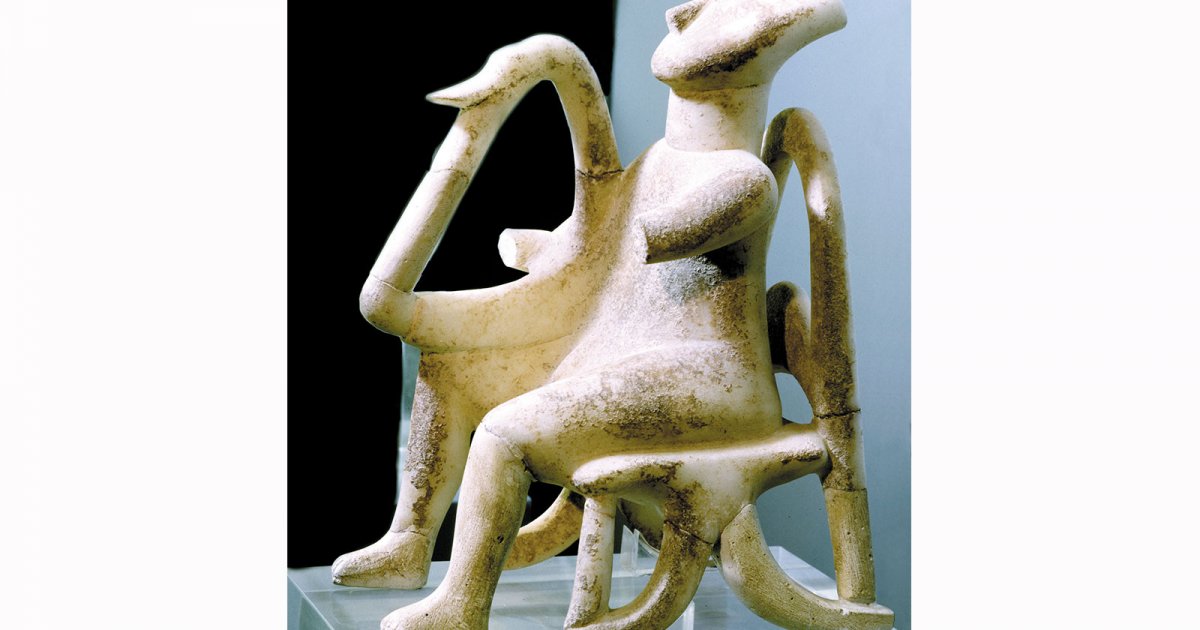ARCHEOLOGICAL MUSEUM, Harp Player Room 06
 Language: English / USA
Language: English / USA
If you think ancient art is primitive and unsophisticated, the “Harp Player” will change your mind. This marble statuette dates to about 2800 – 2300 BC: nearly 5000 years ago!
It depicts a musician playing a string instrument resting on his thigh. It is probably some kind of harp or lyre, roughly triangular with a swan’s beak shape at the top. The figure is sitting on a very elaborate seat, executed with great skill by the sculptor. This sort of throne unquestionably highlights the importance of the figure and the music he is playing, or perhaps singing or performing: it may be that music brought men closer to the gods!
The face of the figure, looking upwards, appears spellbound; despite the abstract simplicity of the work, you can almost see the inspiration, can’t you? A profound poetic significance is evident in this marvelous sculpture, one of the masterpieces of its time.
The work comes from the Cyclades, which in Greek means “circle”, because the islands are positioned around the main island, Delos, and scattered in the Aegean Sea south of the Attic peninsula where Athens is located.
Incredible as it may sound, almost 7000 years ago there were already ports of call on these islands for the adventurous seafarers travelling on a sea that no doubt appeared immense and menacing. These sailors traded in obsidian, a hard, sharp stone used to make sharp tools before the discovery of metalworking, about 5000 years ago.
Since then, these new techniques allowed the island’s craftsmen to create splendid little works of art, especially marble statuettes, renowned for their beauty, that were exported all over the Greek world.
A huge number of these sculptures depict female figures, and it is thought they might represent the goddess of fertility. In the display cases, you’ll find many of these statuettes, representing the human figure in such a simplified manner that they almost seem to have been created by contemporary artists.
An interesting fact: the harp is one of the oldest musical instruments for which there is evidence. In the archeological site of the city of Ur, in Mesopotamia (present-day Iraq), harps have been found dating back to almost 5000 years ago.



